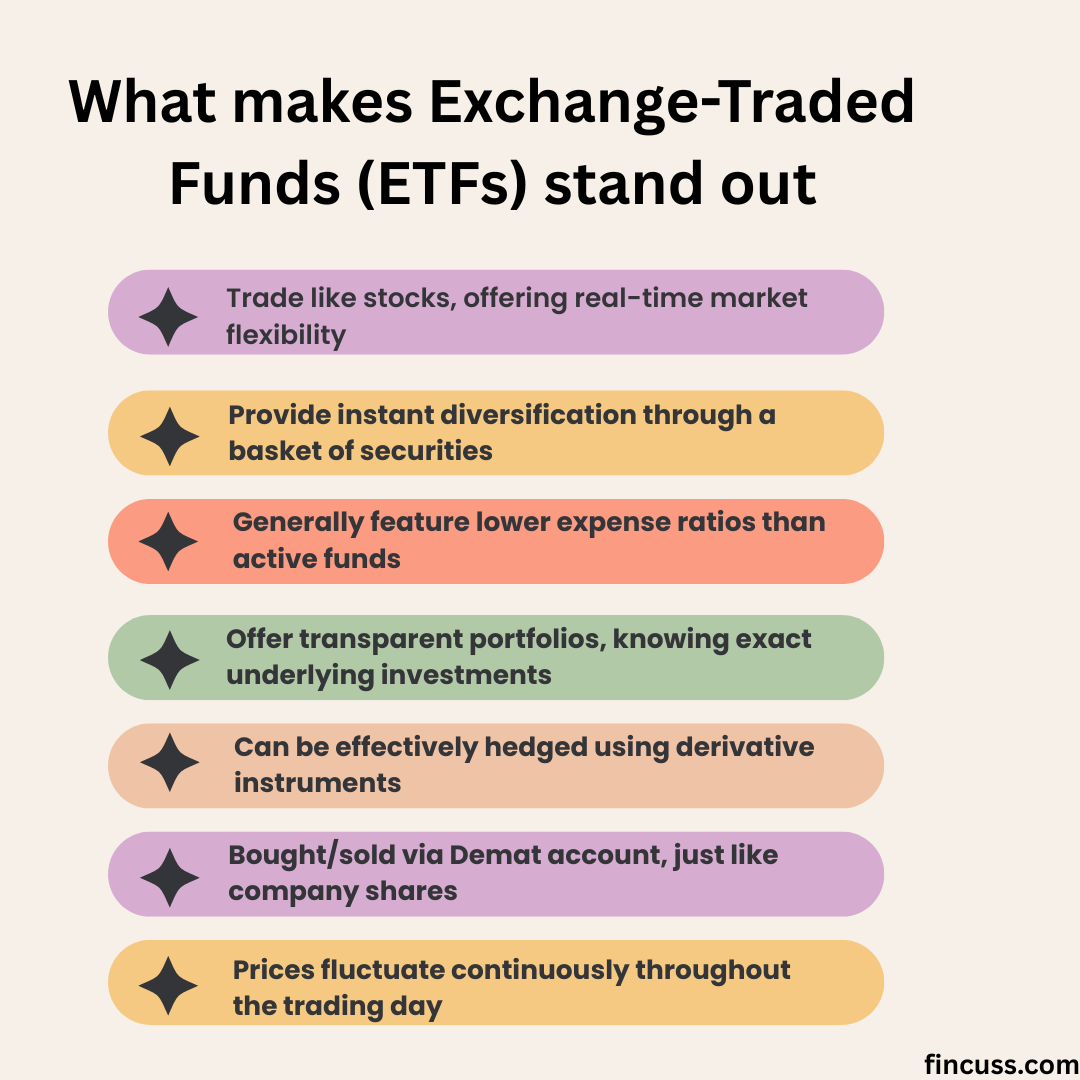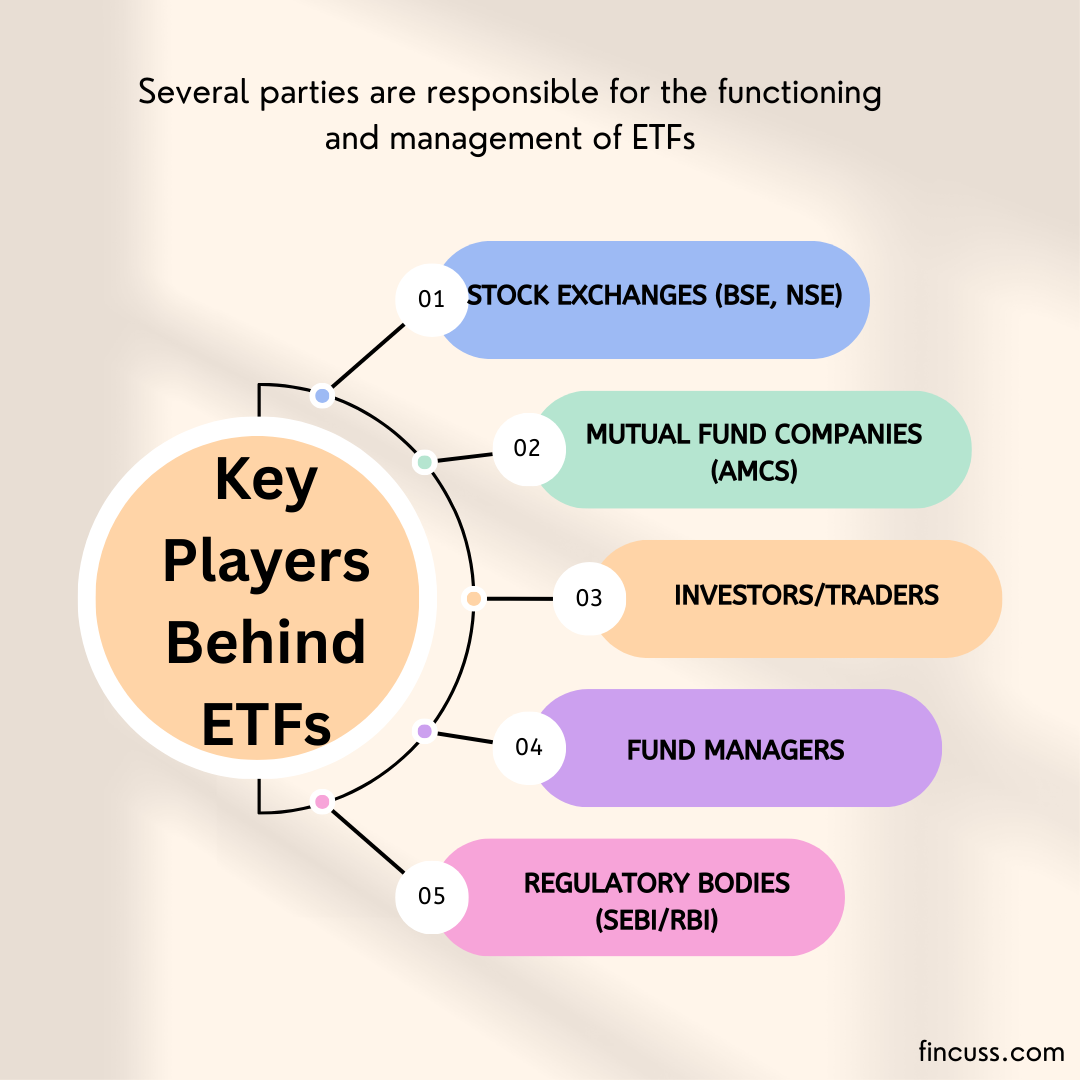Understand ETF Basics to Maximize Your Investment Potential Now
-
Have you heard about this cool investment option that blends stocks and mutual funds? Yep, it’s called an Exchange-Traded Fund, or ETF for short! ETFs are quite popular in the stock market because they make it very easy for you to diversify your investments. Let’s dive into why they’re such a big deal.
Understanding Some Key ETF Terms
Before you delve too deeply into ETFs, there are a few important terms you should know:
- Underlying Index: This is essentially the benchmark that a passively managed ETF aims to match, such as how a Nifty 50 ETF seeks to follow the Nifty 50 index.
- NAV (Net Asset Value): This indicates the actual value of the fund’s assets per share. Think of it as the total assets minus the debts, divided by the number of shares outstanding.
- Premium/Discount: This is the difference between the market price of the ETF and its NAV. Large institutional investors known as "Authorized Participants" often help correct these discrepancies.
- Expense Ratio: This is the annual fee you pay to the fund manager, and the great thing is that ETFs typically have low expense ratios.

Types of ETFs
ETFs come in a variety of types, making it easy to invest in different areas of the market. Here are some main categories:
- Physical ETFs: These hold actual stocks or bonds; most ETFs in India fall under this category.
- Synthetic ETFs: These don’t hold real assets but use contracts called derivatives to mimic the market.
- Index-Specific ETFs: These are designed to track specific indices like the Nifty 50 or Sensex. For instance, the Nifty BeES has been around since 2002.
- Sectoral ETFs: These focus on companies in a specific industry, such as technology, banking, or pharmaceuticals.
- Commodity ETFs: These provide an opportunity to invest in commodities like gold, and digital gold has been gaining popularity lately.
- Bond ETFs: These invest in various bonds. The Bharat Bond ETF is noteworthy as it highlights public sector companies.
- Smart Beta ETFs: These aim to deliver better returns relative to risk compared to traditional market-cap weighted indices.

How to Get Started as a Beginner
If you’re just starting out in India, it’s a good idea to keep things simple with your ETF choices. Look for options that offer liquidity and broad market coverage to keep risks low as you build your investment foundation. Here are some great ETFs for beginners:
- Broad Market Equity ETFs: These are ideal for long-term growth and tend to be inexpensive.
- Nifty 50 ETFs: These track India’s top 50 companies, which means they are stable and liquid. Some popular options include Nippon India ETF Nifty 50 BeES and SBI ETF Nifty 50.
- Sensex ETFs: These follow the top 30 companies on the Bombay Stock Exchange, such as the UTI BSE Sensex ETF.
- Once you become comfortable, you might want to explore Nifty Next 50 ETFs, like Nippon India ETF Nifty Next 50 Junior BeES, for additional diversification.
If you seek stability and a hedge against inflation, Gold ETFs are a good choice. They make it easy to invest in gold, which can be beneficial if the stock market declines. Nippon India ETF Gold BeES is a well-known option in this category.
Some Tips for Beginners Investing in ETFs
- Start a Systematic Investment Plan (SIP): This is a smart way to invest consistently over time.
- Look for ETFs with low expense ratios to help your returns grow faster.
- Pick ETFs with high trading volumes for better liquidity.
- To keep things safe, steer clear of sector-specific ETFs at first; stick to diversified ones.
What's Happening with ETFs in India Right Now?
The ETF scene in India is booming, and it’s becoming a crucial part of how people invest. Here’s what’s happening:
-
Gold ETFs are on the rise: More people are buying gold ETFs instead of physical gold, especially given all the economic uncertainties out there.
-
More Retail Investors: An increasing number of individuals from smaller cities are getting into investing, which shows greater financial awareness.
-
Global Diversification is Key: Some experts suggest that Indian investors consider international ETFs to diversify their portfolios and manage risks, especially with a weaker rupee.
-
Innovative Products: The ETF market is expanding with exciting new options, such as various index funds and "smart beta" ETFs.
Why You Should Consider ETFs
- ETFs provide real-time trading and transparency in investing.
- Unlike traditional index funds, ETFs enable hedging with derivatives.
- The Indian ETF market has grown by 70% in the past decade.
- This growth is driven by EPFO investments and government divestments.
- Choosing ETFs depends on individual investment goals and risk tolerance.
Final Thoughts
ETFs are an excellent mix of diversification, trading flexibility, and cost-effectiveness, making them a great choice for many investors. While direct index funds can offer similar benefits for those looking to invest for the long haul, the unique advantages of ETFs — such as real-time trading and the potential for hedging — make them a solid addition to any modern investment portfolio.
